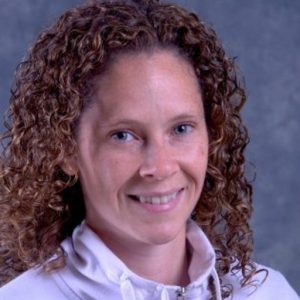
Robyn Newell
Earlier this year, Robyn Newell was part of a group of six faculty members granted an Open Education Resources (OER) Implementation Grant for their proposal, Creation of an open source, WeBWorK based, problem library for undergraduate biomechanics courses.
With this year’s call for applications for OER Fund grants now open, Robyn shared why they chose to pursue open education in their courses, and the project’s progress.
Q: What motivated you and your colleagues to apply for an OER grant?
We felt there was a need to develop educational material that would be openly available, not just for our own teaching assignments, but to be able to share broadly across UBC and other institutions.
The co-applicants to this grant teach various courses focused on biomechanics at the undergraduate level of engineering. We have all struggled to find resources, specifically question sets, for our students to practice and learn the material. The material that does exist is scattered among various text books, all of which are fairly expensive.
Q: How will students benefit from your project?
Learning biomechanics requires a lot of practice, so a lack of question sets makes it harder for students to engage with course material.
To date, we have developed a data set of over 80 questions that will cover topics from various engineering biomechanics courses offered at UBC. These questions are based in WeBWorK, an online homework platform, which means the students can get instant feedback on their work.
We are also working to create interesting and engaging questions, such as interactive questions that require the students to make assumptions, input values from their own literature research, or to assess the limitations of their analysis. We feel the students will greatly benefit from this interactive element which encourages higher levels of learning, such as application, critical analysis, synthesis, and evaluation.
Q: How does the use of open resources support your teaching and learning goals?
The use of open resources allows us to make critical course material available to all students, regardless of their financial situation. And, since no single text book offers the amount and type of questions we have developed, it means that the students can learn the course topics better, without having to buy multiple text books.
Another goal we have is to make the material more engaging and applicable to real-world application. Most text books give all of the values required to answer a question. We have taken an approach that requires the students to think about which values to input into the question, which assumptions are required to solve the question, and the limitations of the answers they have found.
This is much closer to the real-world application of biomechanics and therefore it better prepares the students for how to really succeed in the field of biomechanics.
Q: What have been your first steps towards your project?
This summer several instructors, graduate students, and undergraduate students worked together to develop questions and implement them into WeBWorK. To date we have a set of over 80 questions.
We have also made great progress on making the questions interactive for the students. For example, we have questions that include selecting the appropriate assumption needed to solve the question, having the question populate with values based on what the student has inputted from research literature or data charts, having students assess the limitations of their answer by selecting from a list of choices, etc.
Q: What support has been useful in helping to develop the OER? Have students been involved with the development of the work in any way?
The Centre for Teaching, Learning and Technology have been a great resource for this project. We have also had valuable support from BCcampus in this initiative.
We have hired multiple students, both undergraduate and graduate level, for this work. These students are extremely valuable to the project, both in helping create and implement the questions into WeBWorK and in offering a valuable student perspective on the project.
Q: Why do you think that it is important for instructors to consider using or creating open educational resources?
Creating open education resources is extremely important for instructors to be involved in. Equity is of utmost importance in higher education and open educational resources ensures students all have equal and more affordable access to the entire educational experience you are offering. It is also great to know your efforts can reach a broader community and help other instructors and students.
Robyn Newell is a Lecturer in the School of Biomedical Engineering. Robyn and co-investigators received a 2020/2021 OER Implementation Grant for their project.
Applications for 2021/2022 OER Implementation Grants are now open. Learn more and apply at open.ubc.ca/oer-fund
